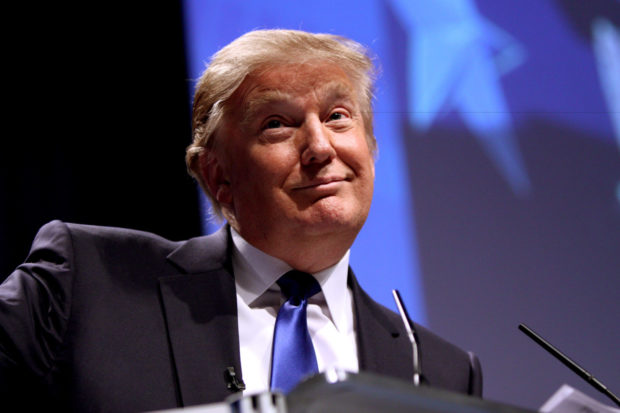
By George B. Kauffman, Ph.D.
- Will Trump shape 2027 spending? He must decide whether to weigh in as Congress divides up $1.1 trillion in discretionary spending for the fiscal year that began last October. A multibillion-dollar boost for the National Institutes of Health (NIH) is involved. Trump could also signal support for riders that would bar agencies from enforcing environmental rules.
- How will science fair in Trump’s first budget? Will he follow his predecessors in devoting about 12% of discretionary spending to research? Will he call for deep cuts to climate and environmental sciences as well as to renewable energy as some conservatives have long advocated? Congress has the final say on spending.
- Who will advise Trump on science? So far, he has ignored pleas from science groups to select a prominent researcher as his science adviser.
- Who will run science agencies? Will they be eminent scientists like many of President Obama’s choices? If they hail from industry, the pattern in Republican administrations, will they command the respect of the scientific establishment?
- Will Trump’s infrastructure plan include science? He is pushing for massive spending to rebuild the country’s transportation infrastructure, but this clashes with the demand of many Republicans to reduce the deficit.
- Will President Obama’s initiatives survive? Many had bipartisan support, but it isn’t yet clear what Trump thinks.
- What are Trump’s ideas on space exploration and commercial space ventures?
- Will the USA remain in ITER, a fusion research reactor in France that may be an important source of power?
- Will the Trump administration support attacks on the work of the 13 federal statistical agencies that decide how to invest trillions of dollars?
- Trump wants to cancel two federal regulations for every new one. He has also supported efforts in Congress to cancel as many as a dozen of President Obama’s major rules, including those that seek to reduce methane (a greenhouse gas 25 times worse than CO2) emissions from oil and gas operation and protect streams from coal mining.
These questions were raised in an article by Jeffrey Mervis in the world’s largest scientific society with more than 120,000 members, the American Academy for the Advancement of Science (AAAS)’s flagship journal Science January 27, 2017, 355 (issue 6323), 333-334 (http://www.sciencemag.org/news/2017/01/president-trump-and-science-ten-things-look-and-fear).
Another article in the same issue, by Michaela Jarvis, “AAAS urges Trump team to value science and its benefits: CEO Rush Holt leads multistage effort to safeguard scientists’ role in good government,” Science January 27, 2017, 355 (issue 6323), 359-360. quotes Holt as saying, “This election is said to have been about rejecting the political establishment. We cannot let that mean rejecting established facts.” (http://science.sciencemag.org/content/355/6323/359). Considering the speed with which the inept and inconsistent Trump administration has acted, many of these questions has been answered — disastrously.
More recently, in an article from the Editor-in-Chief Bibiana Campos, “The controversy goes on,” Chem. Eng. News February 6, 2017, 95(6), 2, wrote, “the American Chemical Society, which publishes C&EN, and 151 other organizations representing a spectrum of professional societies, national associations, and universities sent a letter to Trump stating that they are deeply concerned that this executive order [prohibiting individuals from seven countries entering the U.S] will have a negative on the ability of scientists…to enter, or leave from and return to the United States.” Such restrictions, they say, will “reduce U.S. science and engineering output to the detriment of America and Americans….it is likely that science in Europe and Asia may reap the benefits as alternative destinations for this scientific talent.”
“A few days after the ban was issued, when Rex Tillerson, former Exxon chief executive officer, was confirmed as secretary of state, the House of Representatives voted to eliminate a rule designed to provide transparency of oil and gas companies working abroad. Without this rule, these companies no longer need to disclose any payments, including royalties and taxes, made to foreign governments. And on the day this editorial went to press, an e-mail outlining a plan to dismantle EPA by 2018 was leaked to the Huffington Post. (http://cen.acs.org/articles/95/i6/controversy-goes.html).
*****
George B. Kauffman, Ph.D., chemistry professor emeritus at California State University, Fresno and Guggenheim Fellow, is recipient of the American Chemical Society’s George C. Pimentel Award in Chemical Education, Helen M. Free Award for Public Outreach, and Award for Research at an Undergraduate Institution, and numerous domestic and international honors. In 2002 and 2011, he was appointed a Fellow of the American Association for the Advancement of Science and the American Chemical Society, respectively.
